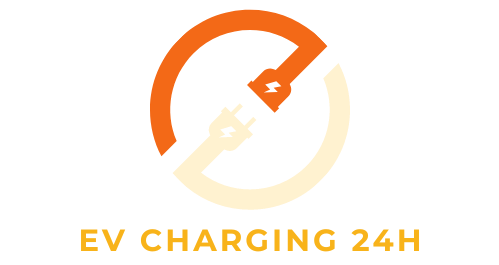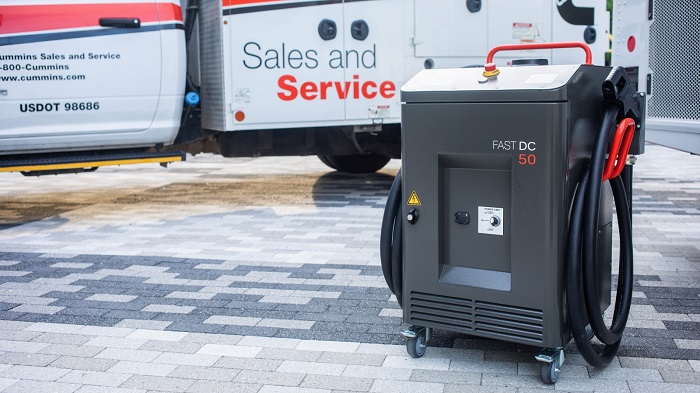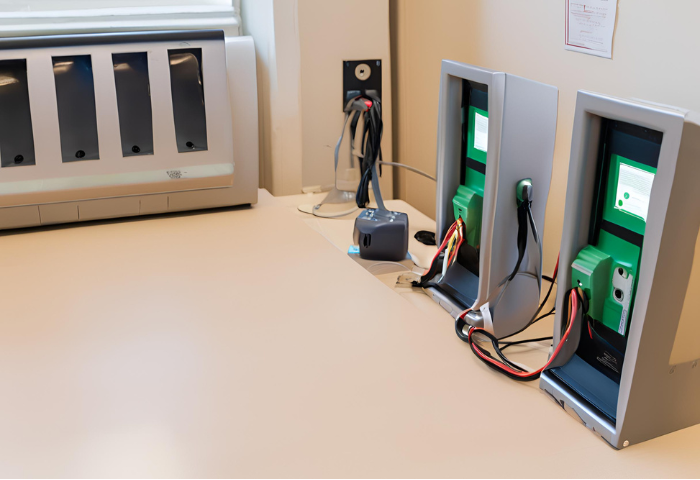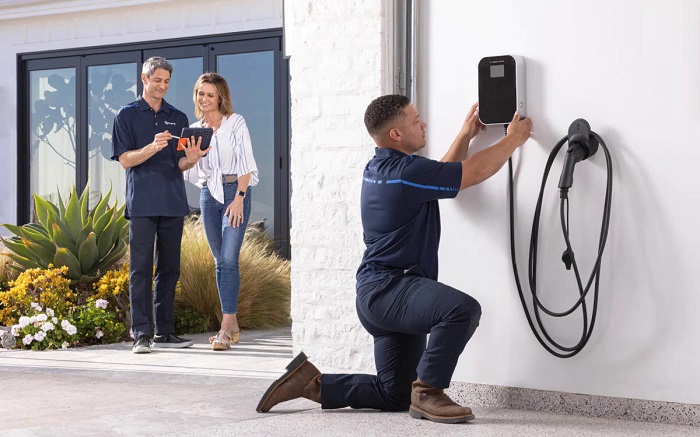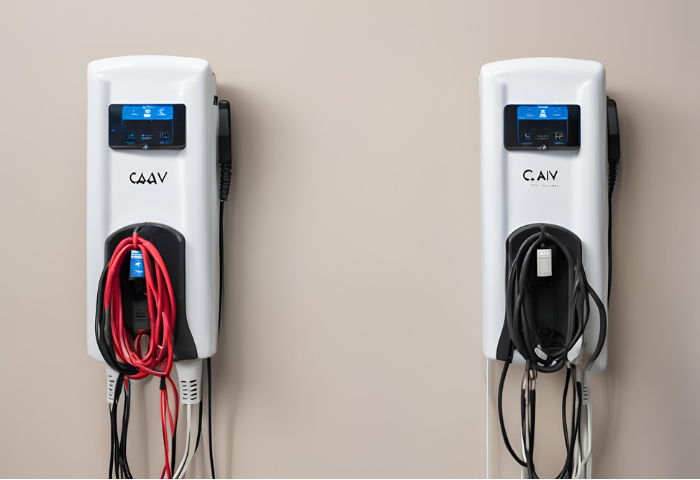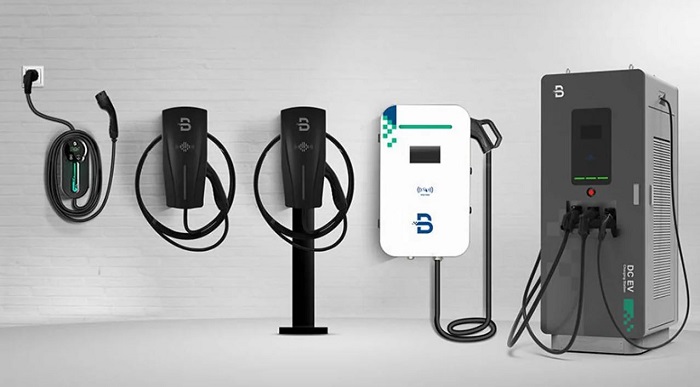Quebec’s Smart EV Charger Market: Trends and Forecasts for Eco-Conscious Drivers
Electric vehicles are revolutionizing the way we travel, and having the right charging infrastructure is essential. Quebec smart EV chargers are becoming more popular because they provide convenient and fast charging solutions. These chargers not only support the green initiative but also provide advanced features like remote monitoring and scheduled charging.
For residents and visitors in Quebec, a smart EV charger can significantly enhance the electric driving experience, ensuring that your vehicle is always ready for the road. With a focus on sustainability and efficiency, Quebec’s commitment to smart EV technology is making it easier for drivers to transition to electric vehicles.
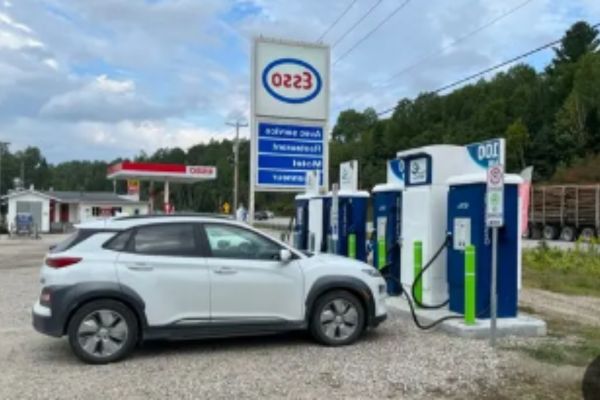
Introduction
This document provides an overview of smart EV charging technology in Quebec.
In Quebec, smart electric vehicle (EV) charging technology is transforming the way we power electric vehicles. This technology encompasses a range of innovations that enable more efficient, flexible, and sustainable charging solutions. Features like load management, which balances the electricity demand among multiple vehicles, and connectivity, enabling remote monitoring and control via mobile applications, equip smart EV chargers.
These systems can optimize charging times based on electricity prices and grid demand, significantly enhancing energy efficiency. In Quebec, provincial policies and incentives aimed at promoting the use of electric vehicles and renewable energy sources support the adoption of smart EV charging.
The importance and growth of EV infrastructure in the region are significant.
Quebec has established itself as a leader in Canada’s EV infrastructure development. The province boasts an extensive network of charging stations, including fast chargers that can significantly reduce charging times. This robust infrastructure is critical for supporting the growing number of EVs on Quebec’s roads.
The provincial government has set ambitious targets to increase the number of electric vehicles, backed by incentives such as rebates for EV purchases and investments in public charging stations. As a result, the EV market in Quebec is experiencing rapid growth, contributing to the province’s goals of reducing greenhouse gas emissions and fostering sustainable transportation solutions.
Environmental Impact
The ecological benefits of switching to electric vehicles are significant.
Transitioning to electric vehicles offers significant environmental benefits, particularly in terms of reducing emissions. Unlike conventional gasoline-powered vehicles, EVs produce zero tailpipe emissions, which helps improve air quality and reduce the harmful pollutants that contribute to smog and respiratory problems.
Additionally, renewable energy sources like hydroelectric power, which is abundant in Quebec, can power EVs. This further reduces the carbon footprint of transportation and supports the province’s commitment to combating climate change. By replacing fossil fuel-powered vehicles with EVs, Quebec can significantly decrease its greenhouse gas emissions, contributing to global efforts to mitigate environmental damage.
Economic Impact
Analysis of EV Adoption’s Economic Implications
The widespread adoption of electric vehicles in Quebec has far-reaching economic implications. One of the most notable impacts is job creation. The growing EV industry has led to increased demand for skilled workers in areas such as manufacturing, maintenance, and infrastructure development.
For instance, the production of EV components and the installation of charging stations create numerous employment opportunities. Moreover, the shift to electric mobility attracts substantial investments from both the public and private sectors.
The public and private sectors direct these investments towards research and development, infrastructure expansion, and incentive programs, thereby stimulating economic growth and innovation.
Additionally, EV adoption can lead to cost savings for consumers. Electric vehicles typically have lower operating and maintenance costs compared to gasoline-powered vehicles. The reduced reliance on imported oil can also enhance energy security and economic stability. Furthermore, by fostering a sustainable transportation system, Quebec can position itself as a leader in the green economy, attracting businesses and investors focused on sustainable practices.
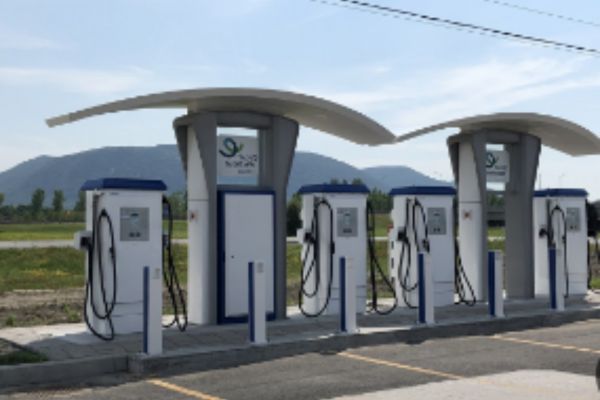
AXSO: Hydro-Québec’s Smart Charging
Hydro-Québec’s Smart Charging Platform
The AXSO platform from Hydro-Québec is a comprehensive software solution that revolutionizes the smart EV charging experience. By incorporating advanced features and technologies, this platform facilitates efficient and intelligent management of electric vehicle charging.
AXSO strives to optimize the entire charging process, guaranteeing the most efficient, cost-effective, and environmentally friendly charging of electric vehicles. The platform uses sophisticated algorithms to balance the load on the electrical grid, manage charging schedules, and provide users with real-time data and control options.
Beyond just an app
AXSO goes beyond the functionality of a traditional app by offering a range of features that significantly enhance the user experience and operational efficiency. Users can easily locate charging stations, monitor their vehicles’ charging progress, and receive notifications when charging is complete—all through a user-friendly mobile application.
The platform also allows users to schedule charging sessions during off-peak hours, taking advantage of lower electricity rates and reducing the strain on the electrical grid. For fleet managers and charging station operators, AXSO provides detailed analytics and reporting tools that help optimize the usage and maintenance of charging infrastructure, thus improving overall operational efficiency.
Integration with renewable energy sources
A key feature of the AXSO platform is its integration with renewable energy sources, particularly hydroelectric power, which is abundant in Quebec. AXSO can optimize charging schedules to coincide with periods of high renewable energy production, such as when hydroelectric generation is at its peak.
This dynamic adjustment not only ensures that electric vehicles are charged using cleaner, more sustainable energy but also helps to balance the grid and reduce dependence on fossil fuels. By leveraging renewable energy, AXSO supports Quebec’s commitment to reducing greenhouse gas emissions and promoting sustainable energy practices.
User Data Security
Hydro-Québec is committed to ensuring the highest standards of security for user data within the AXSO platform. The platform employs robust security measures to safeguard user data from unauthorized access and breaches, acknowledging the sensitive nature of the information it handles.
These measures ensure the secure protection of personal information, payment details, and usage data by encrypting data both in transit and at rest. Additionally, AXSO implements strict access controls and conducts regular security audits to maintain the integrity and security of its systems. Users can trust that their data is managed with the utmost confidentiality and security.
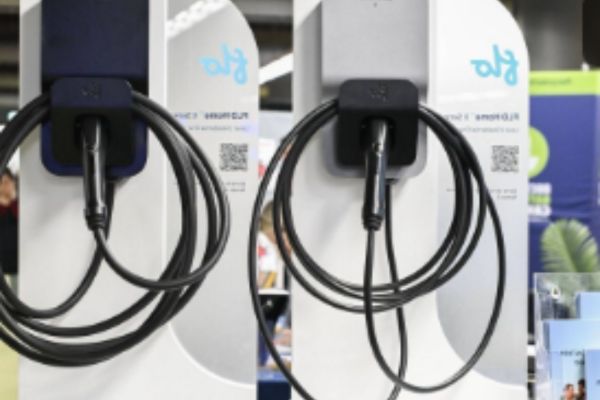
Client Solutions and Testimonials
Here, you’ll find information on how Hydro-Québec has helped clients implement smart charging infrastructure. This could include:
- Types of solutions offered: The available smart charging options, such as home chargers, workplace chargers, or fleet management systems, are detailed.
- Client Benefits: Information on how clients have benefited from smart charging, such as cost savings, improved grid management, or increased sustainability.
How Hydro-Québec built the digital infrastructure
This section dives deeper into the technical aspects of Hydro-Québec’s smart charging network. It could cover:
- Technology used: details on the hardware and software that power Hydro-Québec’s smart charging system.
- Communication protocols: an explanation of how charging stations, vehicles, and the central network communicate with each other.
- Security measures: information on how data privacy and security are ensured within the smart charging system.
Development Insights for the Circuit Électrique:
- Network build-out Strategy: How Hydro-Québec strategically places charging stations to best serve electric vehicle owners.
- Information on how the charging network might be integrated with renewable energy sources like solar or wind power.
- Future plans for the network: details on Hydro-Québec’s vision for expanding and improving the Circuit Électrique.
Case Studies
- Different client types: Examples of how smart charging has helped businesses, municipalities, or individual homeowners.
- Specific results achieved: quantifiable data demonstrating cost savings, improved efficiency, or environmental benefits obtained through smart charging.
- Challenges and solutions: discussion of any difficulties encountered during implementation and how they were overcome.
Client Testimonials
- Quotes from clients: Positive feedback from clients highlights the benefits they’ve experienced.
- Specific use cases: an example of how clients are using smart charging to meet their specific needs.
- Overall satisfaction: client endorsement of Hydro-Québec’s expertise and service.
Grizzl-E: A Comprehensive Range for 2024
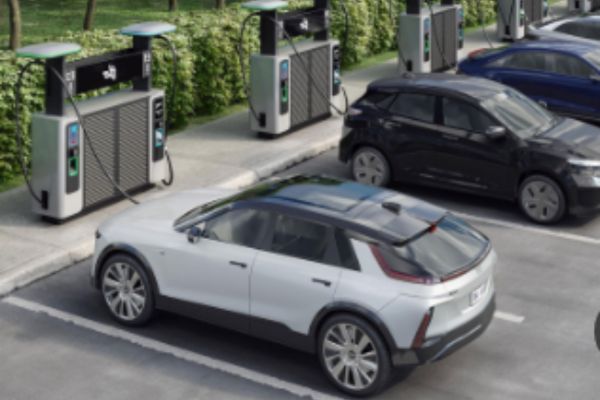
Grizzl-E Charger Models
| Grizzl-E Classic | Up to 40 amps | The product boasts a durable aluminum casing, easy installation, adjustable power settings, and offline functionality. | Home users looking for a reliable, no-frills charging solution |
| Grizzl-E Smart | Up to 40 amps | The device is Wi-Fi enabled, integrates smart apps for remote control and monitoring, and has adjustable power settings. | Tech-savvy users who want to monitor and control their charging remotely |
| Grizzl-E Commercial | Up to 50 amps | Robust construction, enhanced durability, multi-user access, and energy management features | Businesses and commercial properties require reliable, heavy-duty chargers. |
| Grizzl-E Duo | Each dual connector can handle up to 40 amps. | The device features dual charging ports, a compact design, adjustable power settings, and offline functionality. | Homes or businesses need to charge two vehicles simultaneously. |
| Grizzl-E Classic | Up to 40 amps | The product boasts a durable aluminum casing, easy installation, adjustable power settings, and offline functionality. | Home users looking for a reliable, no-frills charging solution |
Finding the right match
Selecting the appropriate Grizzl-E model depends on several factors:
- Usage Needs:
Grizzl-E Classic or Smart models are suitable for home use. The classic model is great for straightforward needs, while the smart model offers advanced features for tech enthusiasts.
Commercial Use: The Grizzl-E Commercial model is built for high usage and multiple users.
Multiple Vehicles: The Grizzl-E Duo is perfect for households or businesses with more than one EV.
- Power Requirements: Consider the maximum amperage your electrical system can support. Higher power output models, like the Grizzl-E Commercial, might require electrical upgrades.
- Budget: Basic models like the Grizzl-E Classic offer cost-effective solutions, while models like the Grizzl-E Smart and Commercial provide more advanced features at a higher price point.
- Smart Features: If remote monitoring and control are important, opt for the Grizzl-E Smart model.
Environmental Certifications
Grizzl-E has received numerous environmental certifications and designs its products with sustainability in mind.
- Energy Star Certification: Indicates that Grizzl-E chargers meet strict energy efficiency guidelines set by the EPA.
- UL Certification: Ensures that the products have been tested for safety and comply with North American standards.
- RoHS Compliance: Demonstrates that Grizzl-E chargers are free from hazardous materials, promoting a greener environment.
- LEED Points Contribution: Using Grizzl-E chargers can help buildings achieve LEED (Leadership in Energy and Environmental Design) certification, supporting sustainable building practices.
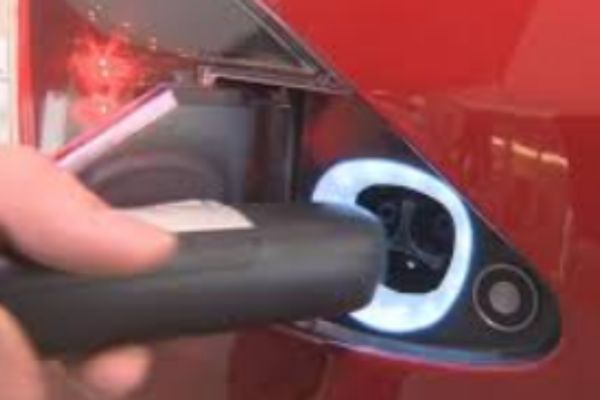
This study compares the market performance of Grizzl-E chargers with those of their competitors.
| Competitor Model | Power Output | Features | Comparison |
| ChargePoint Home Flex | Up to 50 amps | Wi-Fi enabled, app integration, and voice control with Alexa | Offers slightly higher power output and voice control features, but at a higher cost compared to the Grizzl-E Smart. |
| Tesla Wall Connector | Up to 48 amps | It is specifically designed for Tesla vehicles and features Wi-Fi connectivity and auto-scheduling. | Provides seamless integration for Tesla owners, but Grizzl-E offers broader compatibility with different EV brands. |
| JuiceBox 40 | Up to 40 amps | The device is Wi-Fi-enabled, integrates with the smart grid, and allows voice control via Amazon Echo. | Offers similar features to Grizzl-E Smart, but Grizzl-E chargers often come at a more competitive price point. |
| Bosch Level 2 Charger | Up to 32 amps | The Bosch brand is known for its simple design, reliability, and outstanding reputation. | Known for reliability, Grizzl-E offers higher power output options and smart features at comparable or lower prices. |
Grizzl-E chargers provide a balanced mix of reliability, advanced features, and cost-effectiveness, making them a strong contender in the EV charger market.
QUBEV SMART by Rolec EV Charging
Features of QUBEV Smart
The QUBEV SMART by Rolec EV Charging is designed to be future-proof and comes packed with a host of features aimed at enhancing the user experience and convenience. Some of the standout features include:
- Smart Connectivity: Equipped with Wi-Fi and Ethernet capabilities, allowing for seamless integration with home networks and smart devices.
- App Control: Users can monitor and control charging sessions via a dedicated mobile app, providing real-time data and remote management options.
- Dynamic load balancing ensures efficient power distribution and prevents overloads by adjusting the charging rate based on household energy consumption.
- Universal Compatibility: Suitable for all EVs and plug-in hybrid vehicles, featuring a Type 2 connector.
- Customizable Charging Schedules: This feature allows users to set charging times to take advantage of off-peak electricity rates.
- Safety Features: Built-in protection against overcurrent, overvoltage, and ground faults.
Innovation in Design
The QUBEV SMART is a testament to Rolec EV Charging’s commitment to innovation, combining cutting-edge technology with a sleek, user-friendly design.
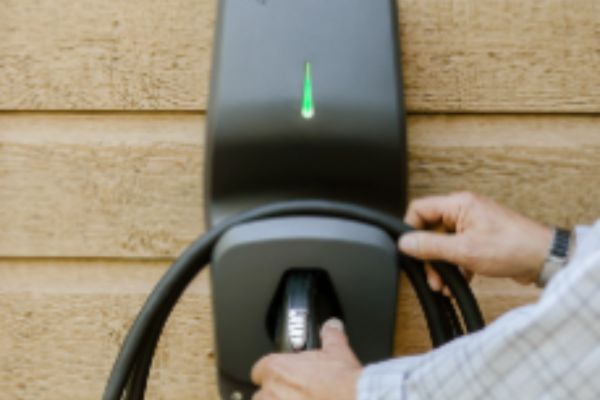
- Compact and robust: designed to be both space-efficient and durable, suitable for installation in a variety of environments.
- Future-Proof Technology: Ready for integration with upcoming smart grid technologies and renewable energy sources.
- Advanced User Interface: The mobile app’s intuitive interface and the unit itself make it easy for users to manage their charging needs.
- Environmental Considerations: Manufactured with eco-friendly materials and processes, aligning with sustainability goals.
Installation options and services
Rolec EV Charging offers a range of customization options and comprehensive installation services to meet diverse user needs.
- Customization Options: Customers can choose from various cable lengths, mounting styles, and color finishes to match their preferences and installation sites.
- Professional Installation: Qualified installers guarantee the safe and efficient setup of the QUBEV SMART, offering guidance on its optimal placement and usage.
- After-Sales Support: To ensure long-term reliability and performance, Rolec provides ongoing support and maintenance services.
User Reviews
Real-world feedback on the QUBEV SMART highlights its practicality and advanced features:
- Positive Feedback: Many users appreciate the ease of installation, robust app features, and reliable performance.
- Efficiency and Cost Savings: Reviews frequently mention the benefits of customizable charging schedules and dynamic load balancing, which help to reduce electricity costs.
- User Experience: People frequently praise the intuitive app interface and the smart connectivity options for enhancing the overall user experience.
- Rolec’s responsive customer support and professional installation services receive high praise from users.
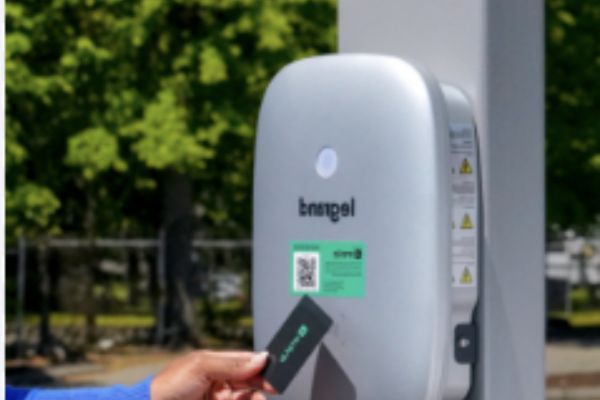
Mobile and Residential Charging Innovations
This section will delve into the world of electric vehicle (EV) charging, focusing on both mobile solutions and options for your home.
Mobile EV charging
Imagine never having to worry about finding a charging station again! In Quebec, a novel mobile EV charging service is making waves. This introductory part will explore the concept and its potential benefits.
Residential Chargers
Charging your EV at home offers unmatched convenience. This section will provide an overview of the different home charger models available, helping you choose the one that best suits your needs.
Regulatory Compliance
Before installing a home charger, it’s crucial to understand the regulations in your area. This section will cover the key points you need to consider to ensure a compliant installation.
Impact on Home Energy Use
Integrating an EV charger into your home’s electrical system will undoubtedly affect your energy consumption. This section will discuss these effects and explore strategies to mitigate them, potentially reducing your overall energy bill.
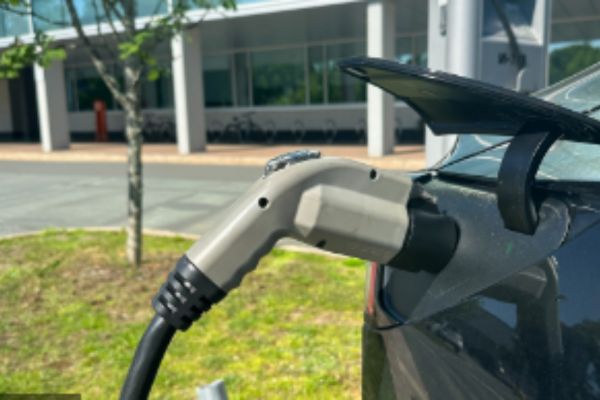
Local infrastructure and community support
Quebec City EV Charging Stats
EV Charging Infrastructure Statistics: Misconceptions: Quebec City has been actively expanding its EV charging infrastructure to accommodate the growing number of electric vehicles. Key statistics include:
- There are over 300 public charging stations in Quebec City, with a mix of Level 2 and DC fast chargers to meet various charging needs.
- Geographic Distribution: Charging stations are strategically located throughout the city, including downtown areas, shopping centers, public parking lots, and residential neighborhoods.
- Usage Rates: The usage rates of public chargers have seen a significant increase, with some stations reporting utilization rates of over 70% during peak times.
- Future Expansion Plans: Strategies are in place to increase the number of charging stations by 50% over the next five years, focusing on underserved areas and high-traffic zones.
Government Policies and Incentives
- Purchase Rebates: The provincial government provides rebates of up to $8,000 for the purchase or lease of new electric vehicles, with additional incentives for used EVs.
- Home Charging Incentives: Homeowners can receive rebates of up to $600 for the purchase and installation of a home charging station.
- Tax Credits: Federal tax credits are available for EV purchases, complementing provincial incentives to reduce the overall cost of ownership.
- Infrastructure Grants: Businesses and municipalities can receive grants and subsidies to install public charging stations, aimed at increasing accessibility and convenience.
- Zero-Emission Vehicle Mandates: Policies require a certain percentage of new vehicle sales to be zero-emission, encouraging manufacturers to offer more EV options.
Public Education and Awareness Campaigns
- Public Awareness Campaigns: The government and non-profit organizations run campaigns highlighting the environmental and economic benefits of EVs, addressing common misconceptions, and providing information on available incentives.
- Test Drive Events:eventss allowing potential buyers to test drive a range of electric vehicles, giving firsthand experience of the technology and its benefits.
- Workshops and Seminars: To educate residents about the installation and use of home charging stations, the advantages of EV ownership, and the available government support, we hold educational workshops and seminars.
- Educational programs in schools teach students about sustainable transportation and the importance of reducing carbon emissions, fostering early awareness and interest in EV technology.
- Community Partnerships: Working with local businesses and community groups to promote EV adoption through shared resources and information dissemination.
These efforts aim to build a supportive community for EV owners, reduce barriers to adoption, and enhance the overall infrastructure to support a sustainable transportation future in Quebec City.
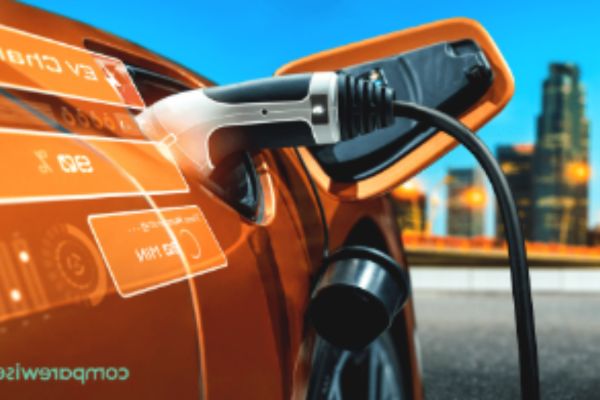
Community Insights and Recommendations
This section will draw on the expertise of the Quebec City EV community to provide valuable insights for current and future EV owners.
Local community engagement
Engaging with local EV forums can be a treasure trove of information. Here, we’ll explore the insights and recommendations shared by local EV drivers. This might cover preferred charging stations, real-world experiences with different EV models, or efficient charging strategies.
Challenges and barriers
The transition to EVs isn’t without its challenges. This section will discuss the common hurdles faced by EV owners in Quebec City, such as range anxiety, limited access to charging stations in certain areas, or the potential upfront costs of EVs.
Future Trends
The world of EV technology and infrastructure is constantly evolving. This section will explore predictions for the future, focusing on potential advancements in charging technology (faster charging times, innovative charging methods), and the anticipated growth of charging infrastructure in Quebec City.
Conclusion:
This is a summary of Quebec’s progress and future outlook in EV infrastructure.
Quebec has made significant strides in developing its EV infrastructure, reflecting its commitment to sustainable transportation and environmental stewardship. The city has established a robust network of over 300 public charging stations, strategically distributed to meet the needs of its growing EV community. Government policies and incentives, such as purchase rebates, home charging grants, and infrastructure subsidies, have played a crucial role in accelerating EV adoption and expanding the charging network.
Community engagement has been vital in driving EV initiatives, with active participation in forums, local events, and educational campaigns. These efforts have helped to raise awareness, dispel myths, and provide practical support to new and prospective EV owners. However, challenges such as the need for more charging stations, high upfront costs, and knowledge gaps remain.
Looking ahead, the future of EV infrastructure in Quebec is promising. The EV landscape will undergo a revolution due to technological advancements in ultra-fast charging, wireless charging, and vehicle-to-grid (V2G) integration. Continued investment in smart grid integration and sustainable practices will further enhance the efficiency and environmental benefits of the EV ecosystem.
Call to Action
To sustain and accelerate this progress, it is essential for all stakeholders to actively engage in EV initiatives.
- Government bodies should continue to provide and expand incentives, streamline regulatory processes, and invest in public infrastructure.
- Businesses and Utilities: Partner in the development of charging stations, offer workplace charging solutions, and explore innovative technologies such as V2G.
- Community Organizations: Promote awareness and education, organize events, and create support networks for EV owners.
- Individuals: Consider the benefits of EV ownership, take advantage of available incentives, and participate in local EV communities.
By working together, Quebec can achieve its vision of a sustainable, accessible, and future-proof transportation system, setting a benchmark for other regions to follow. Now is the time for concerted action to build on the progress made and drive the next phase of EV infrastructure development.

Henry Michael is a leading expert in EV charging station research, specializing in innovative solutions for electric vehicle infrastructure. With a passion for sustainability and technological advancement, he is dedicated to advancing the accessibility and efficiency of EV charging worldwide.
